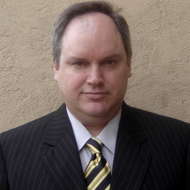How long should a resume be? Do you need to hire a professional resume writer? How much employment history should you include? What size fonts should you use?
If you’re like most job seekers, you probably have lots of questions about how to create an effective resume. Read on to learn the answers to some of the most common – and important – resume-related questions.
Join Mapertunity
How Long Should a Resume Be?
How long should a resume be for a professional? How long should a resume be for a college student? Is a 3-page resume too long? How about a 4-page resume?
The answer to the question of long a resume should be is it depends. Every applicant is different, as is every job you apply to. The length of your resume should be driven not by any arbitrary page length, but rather the amount of information you have that is relevant to the job opening.
As an example, if you’re a recent college graduate, a one-page resume might be all you can put together – and that’s fine. If you have a few decades of relevant work experience, however, you may want and need to go with a two- or three-page resume.
That said, in most instances, shorter is better. You don’t want to leave out anything important, but you also don’t want to bury your major accomplishments in a barrage of less relevant details. This is why many job experts recommend creating a one- or two-page resume that includes only your career highlights and more recent employment information. You want to make an impact on the hiring manager, not bore him or her with more information than is necessary.
Do I Need to Hire a Professional Resume Writer?
Ask this question to a professional resume writer and he or she is likely to answer “yes.” While it’s true that a pro can help you quickly get to an effective result, you may not need to go to that expense. Pay attention to the details, focus on your strengths and how they apply to the open position, and you can do it yourself. If you have trouble targeting your strengths or are just a poor writer, however, don’t be embarrassed; a professional resume writer can definitely help.
Do I Need to Customize My Resume for Different Jobs?
When you’re in the market for a new job, one size does not fit all. You should have a master resume stored on your computer that you can then customize (slightly) for the needs of different employers. You’ll want to tweak your accomplishments to be relevant to the job at hand, and maybe even delete a few old employers if they’re not particularly germane. You don’t need to start completely from scratch for each new opportunity, but a little strategic customization doesn’t hurt.
Should My Resume Have a Career Objective Section?
In the past, it was common to see a section titled Career Objective(s) at the top of most resumes. This section was typically a sentence or two that detailed your immediate career goals.
Today, however, most career experts recommend against including this section in your resume. After all, the hiring manager knows you’re interested in the current job opening, you don’t have to spell it out. It ends up just taking up valuable space on the page that could be devoted to more unique and relevant information.
How Do I Select Keywords for My Resume?
Many employers today use automated applicant tracking systems (ATS) to scan submitted resumes for specific keywords relating to the open position. If your resume doesn’t include the right keywords, it may be summarily rejected.
It’s important, then to include the right keywords for each job to which you apply. Work through the job listing and note the most important words used by the employer, especially those in the job title and requirements sections. Make sure your resume includes those keywords in your employment history and skills sections.
How Much of My Employment History Should I Include?
The answer to this one depends on how long you’ve been in the job market. If you’re just out of school or have only been working for a half-dozen years, include all your jobs – including those during high school or college. If you have more work experience, you don’t have to include the older jobs. A good rule of thumb is to only list those positions you’ve held within the past 10-12 years – unless there is relevant employment previous to that. You should always list those jobs that are most relevant or similar to the one you’re currently seeking.
Do I Need to Describe My Previous Employers?
Given that the prospective employer might not be familiar with all the companies you’ve worked for, it’s a good idea to include a short (one-sentence) description of each previous employer you list in your resume. Don’t assume every businessperson knows every business out there, even in their own industry.
Should My Resume Include a Headshot?
Many career experts recommend against including a personal photo with your resume because you don’t want potential employers to judge or discriminate against you based on your looks. Others believe that including a photo can help recruiters remember you – and they’re going to see your picture anyway when they check out your social media profiles.
What Size Fonts and Margins Should I Use?
When formatting your resume, make sure the text is readable without being overwhelming. That means choosing a body font size no smaller than 10 points and no larger than 12 points. Format your headings a few points larger than the text.
As to margins, a 1-inch margin on all sides is pretty standards. If you need to fit a little more text on the page you can reduce the margins a tad, but don’t go under a half-inch.
Let Mapertunity Help You Find Your Next Job
When you’re polishing up your resume, let Mapertunity help you determine who to send it to. Mapertunity is the world’s first fully transparent, interactive job map. We help people find the right job in the right location – and target the best companies for your resume.
When you’re working on your resume, contact us at Mapertunity! We’re here to help.

